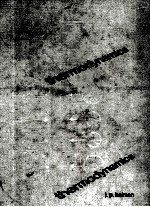图书介绍
THERMODYNAMICS2025|PDF|Epub|mobi|kindle电子书版本百度云盘下载

- J.P.HOLMAN 著
- 出版社: MCGRAW-HILL BOOK COMPANY
- ISBN:
- 出版时间:1969
- 标注页数:446页
- 文件大小:72MB
- 文件页数:459页
- 主题词:
PDF下载
下载说明
THERMODYNAMICSPDF格式电子书版下载
下载的文件为RAR压缩包。需要使用解压软件进行解压得到PDF格式图书。建议使用BT下载工具Free Download Manager进行下载,简称FDM(免费,没有广告,支持多平台)。本站资源全部打包为BT种子。所以需要使用专业的BT下载软件进行下载。如BitComet qBittorrent uTorrent等BT下载工具。迅雷目前由于本站不是热门资源。不推荐使用!后期资源热门了。安装了迅雷也可以迅雷进行下载!
(文件页数 要大于 标注页数,上中下等多册电子书除外)
注意:本站所有压缩包均有解压码: 点击下载压缩包解压工具
图书目录
1 introduction1
1-1 The nature of thermodynamics1
1-2 Relation between classical mechanics and thermodynamics2
1-3 Temperature and heat4
1-4 Temperature scales5
1-5 The state principle8
1-6 Work9
1-7 Micro/macro thermodynamics9
1-8 Thermodynamic properties11
1-9 Fundamental thermodynamic laws12
1-10 Applications of thermodynamics13
1-11 Unit systems13
1-12 The ideal gas20
1-13 The ideal-gas thermometer23
1-14 Simple kinetic theory of an ideal gas24
2 the first law of thermodynamics30
2-1 Introduction30
2-2 Work31
2-3 Internal energy38
2-4 The first law of thermodynamics41
2-5 Heat and specific heat43
2-6 Summary48
3 macroscopic properties of pure substances51
3-1 Introduction51
3-2 Properties of pure substances53
3-3 Equations of state57
3-4 Specific heats62
3-5 Coefficient of expansion67
4 principles of energy analysis73
4-1 Introduction73
4-2 Energy balances and sign conventions74
4-3 The closed system74
4-4 The open system74
4-5 Processes involving ideal gases84
4-6 The Joule-Thomson coefficient90
5 principles of statistical thermodynamics97
5-1 Introduction97
5-2 Probability98
5-3 Phase space104
5-4 Microstates and macrostates105
5-5 Quantum considerations105
5-6 Physical models108
5-7 Degeneracy109
5-8 Purpose of statistical analysis111
5-9 Stirling’s approximation112
5-10 Bose-Einstein statistics113
5-11 Fermi-Dirac statistics115
5-12 The classical Maxwell- Boltzmann model116
5-13 The equilibrium distribution116
5-14 Entropy119
5-15 The second law of thermodynamics119
5-16 The partition function120
5-17 The constants A and β122
6 the second law of thermodynamics125
6-1 Introduction125
6-2 Physical description of the second law126
6-3 Kelvin-Planck and Clausius statements127
6-4 Reversible processes and cycles128
6-5 Thermodynamic temperature130
6-6 The Carnot cycle132
6-7 The inequality of Clausius133
6-8 Macroscopic definition of entropy134
6-9 Principle of increase of entropy135
6-10 Microscopic interpretation of entropy144
6-11 Maxwell’s demon and information theory144
7 equations of state and general thermodynamic relations149
7-1 Introduction149
7-2 Some mathematical preliminaries149
7-3 Helmholtz and Gibbs functions151
7-4 The energy equation151
7-5 The Maxwell relations152
7-6 Enthalpy,internal energy,and entropy153
7-7 Specific heat relations155
7-8 The gas tables156
7-9 Specific heats at elevated pressures160
7-10 The Clausius-Clapeyron equation160
7-11 Development of tables of thermodynamic properties162
7-12 Equations of state164
7-13 The generalized compressibility factor169
7-14 Energy properties of real gases174
7-15 Thermodynamics of magnetism181
7-16 Magnetocaloric effect183
8 applications of statistical thermodynamics187
8-1 Introduction187
8-2 The constants β and k188
8-3 Properties and partition functions189
8-4 The ideal monatomic gas192
8-5 Diatomic and polyatomic gases195
8-6 Equipartition of energy203
8-7 The solid state204
8-8 The electron gas208
8-9 Conductors and semiconductors215
8-10 The photon gas(blackbody radiation)220
8-11 Ensembles and interacting systems224
9 kinetic theory and transport phenomena229
9-1 Introduction229
9-2 The Maxwell- Boltzmann velocity distribution230
9-3 Molecular flux234
9-4 Mean free path238
9-5 Influence of collisions on molecular flux240
9-6 Average collision distance241
9-7 Generalized transport coefficient241
9-8 Thermal conductivity242
9-9 Dynamic viscosity243
9-10 Mutual diffusion of like molecules245
9-11 Mutual diffusion of unlike molecules247
9-12 Thermal diffusion248
9-13 Electron transport in gases250
9-14 Influence of molecular force fields on transport processes253
10 gaseous mixtures259
10-1 Introduction259
10-2 The Gibbs-Dalton law259
10-3 Energy properties of mixtures263
10-4 Mixtures of an ideal gas and a vapor267
10-5 Adiabatic saturation269
10-6 The psychrometric chart271
10-7 Air-conditioning processes273
11 chemical thermodynamics and equilibrium285
11-1 Introduction285
11-2 Combustion reactions285
11-3 Enthalpy of formation288
11-4 Heat of reaction292
11-5 Adiabatic flame temperature294
11-6 Equilibrium296
11-7 Chemical equilibrium of ideal gases300
11-8 The chemical potential308
11-9 The third law of thermodynamics310
11-10 The concept of maximum work311
12 conventional power and refrigeration cycles317
12-1 Introduction317
12-2 General considerations318
12-3 Vapor power cycles319
12-4 Deviations from theoretical vapor cycles329
12-5 Air compressors332
12-6 Internal-combustion-engine cycles339
12-7 The Otto cycle340
12-8 The diesel cycle342
12-9 Gas-turbine cycles346
12-10 The gas turbine for jet propulsion353
12-11 The ramjet356
12-12 The rocket357
12-13 Specific impulse357
12-14 Vapor refrigeration cycles358
12-15 Absorption refrigeration cycles361
13 thermodynamics of irreversible processes367
13-1 Introduction367
13-2 Phenomenological laws368
13-3 Onsager reciprocity relation369
13-4 Applicability of the phenomenological relations370
13-5 Heat flux and entropy production370
13-6 Thermoelectric phenomena372
13-7 Thermoelectric circuits376
14 direct energy conversion382
14-1 Introduction382
14-2 Fuel cells383
14-3 Thermoelectric energy-conversion devices388
14-4 Thermionic devices397
14-5 Magnetohydrodynamic generators400
appendix409
Table A-1 Important physical constants409
Table A-2 Conversion factors409
Table A-3 Critical constants410
Table A-4 Heat of formation,absolute entropy,and free energy of forma- tion at 25°C(77°F)and 1 atm411
Table A-5 Properties of water—saturation-temperature table412
Table A-6 Properties of water—saturation-pressure table414
Table A-7 Properties of water—superheated vapor table416
Table A-8 Properties of water—compressed-liquid table421
Table A-9 Properties of saturated ammonia—temperature table422
Table A-10 Properties of saturated ammonia—pressure table423
Table A-11 Properties of superheated ammonia424
Table A-12 Properties of Freon-12(dichlorodifluoromethane)—saturation-temperature table426
Table A-13 Properties of superheated Freon-12428
Table A-14 Thermodynamic properties of air at low pressure430
Table A-15 Thermodynamic properties of gases at low pressure433
index439
热门推荐
- 220906.html
- 250194.html
- 3434429.html
- 1587682.html
- 2005360.html
- 1627279.html
- 880582.html
- 272793.html
- 2091470.html
- 1078043.html
- http://www.ickdjs.cc/book_577174.html
- http://www.ickdjs.cc/book_2011520.html
- http://www.ickdjs.cc/book_2451185.html
- http://www.ickdjs.cc/book_2604782.html
- http://www.ickdjs.cc/book_2067887.html
- http://www.ickdjs.cc/book_1497143.html
- http://www.ickdjs.cc/book_2616253.html
- http://www.ickdjs.cc/book_3066353.html
- http://www.ickdjs.cc/book_1729516.html
- http://www.ickdjs.cc/book_2212759.html